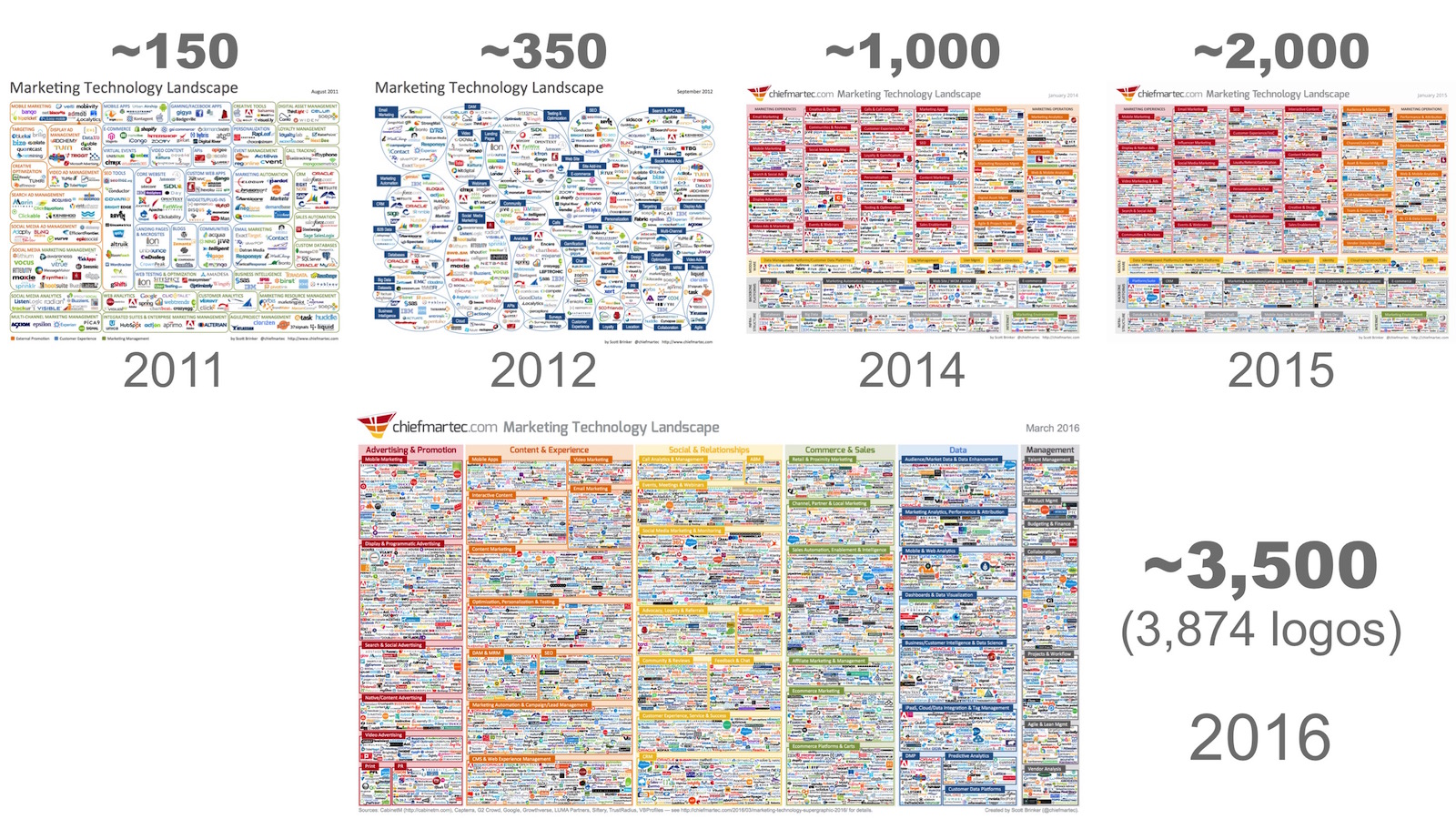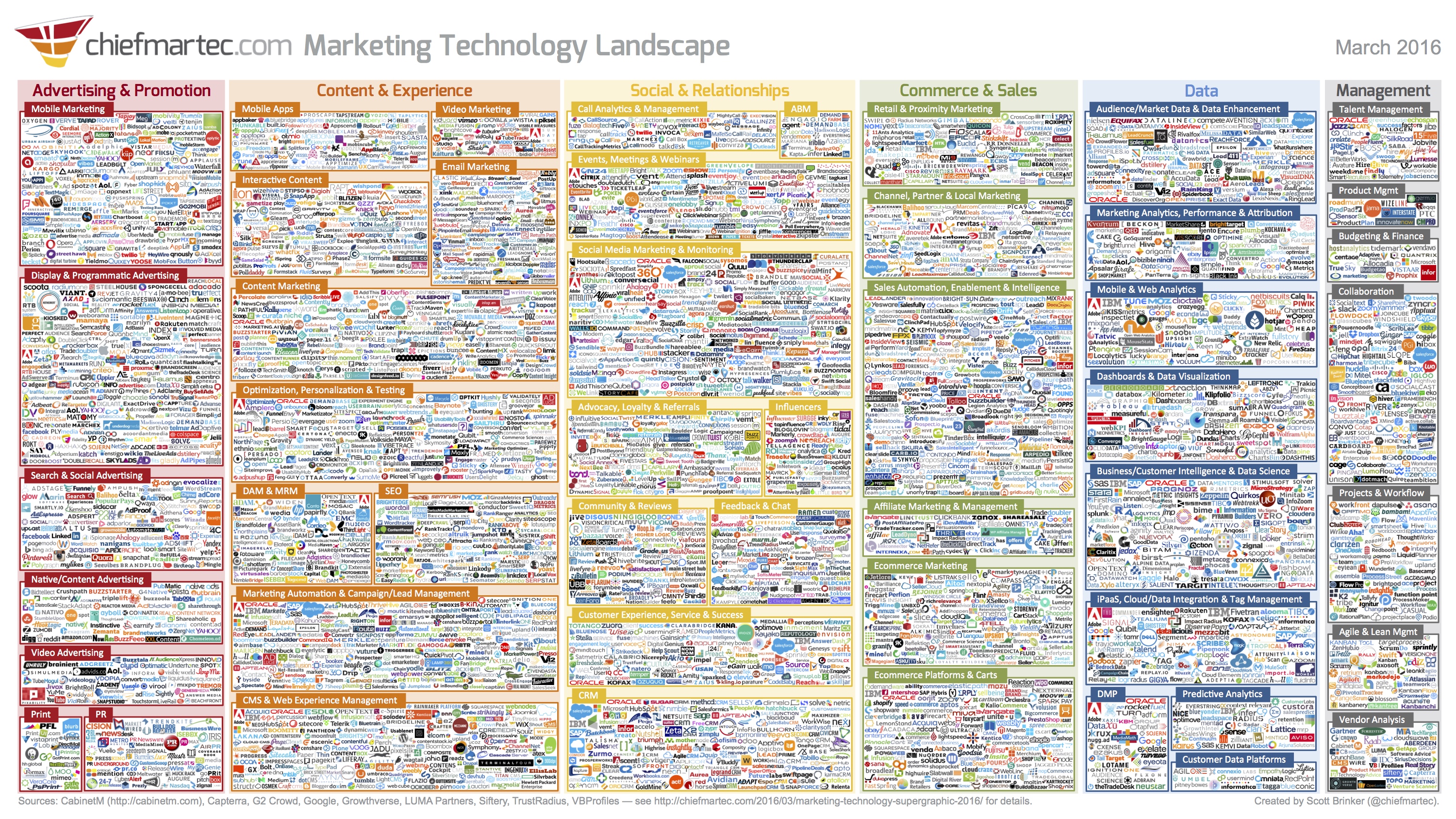This post has been brewing for a few years.
I thought a CMO hiring a marketing technologist was cop-out.
I thought any CMO or Marketing VP worth their salt should hold themselves responsible — maybe with help from trusted vendors — for knowing what marketing technologies can best help them deliver … more leads, website security, improved program management, innovative sales tools, etc. After all, the CMO is closest to the mission of the team, so her radar should be wildly more accurate about potential productivity boosts or time savers, right?
And making the job easier, new start ups creating the next marketing miracle tool actively reach out to marketing leaders to show their shiny new “disruptive” toy. So unlike a marking technologist who has to go out and dig, the CMO need merely wait to be approached.
I was wrong.
I was wrong for (at least) two reasons:
- It is too big to do well. Have you seen recent landscapes of marketing technology — often called “Martech?”
Less than 10 years ago, Martech was sleepy. It’s now wide-awake. More start ups. More tools. More integrations. More more more means less less less time to understand and evaluate. Below is Scott Brinker’s view of growth in just the last five years.
As CMO, you’re juggling demand gen, sales enablement, thought leadership, and compelling differentiation. You won’t do it justice to your Martech thinking.
- Keeping Martech evaluation in one head (i.e. not yours) means better decisions, fewer naïve “oohs” and “aahs,” and better integration. Any good marketing technologist was once, well, another kind of technologist. So there’s a good bet she knows more than a CMO will know about why a tool, for example, delivering dashboards via SQL queries to a separate database is better and worse than a tool that imports and processes data itself.
And to be practical: growth companies don’t have budget to have a person spend all her time thinking. So your marketing technologist surely has a non-research day job. Maybe managing the marketing automation system, working with sales ops on integration with the CRM, or creating tools and dashboards to run the business. They’ll use the technology every day. And if you need to know whether a new kind of palm frond will make a good basket, ask the basket weavers.
So I learned my lesson. I don’t like the answer, but after fighting it for years, the evidence is overwhelming. Your marketing technologist isn’t your first hire. Or your second. But I welcome a discussion on whether it’s your fifth or sixth.
I credit Scott Brinker and his Chief Marketing Technologist blog for pushing me to think through this over the last few years. He’s a thoughtful guy and saw the trend early. I recommend you check out his work. Below is a better look at his (very personal) Marketing Technology landscape.





